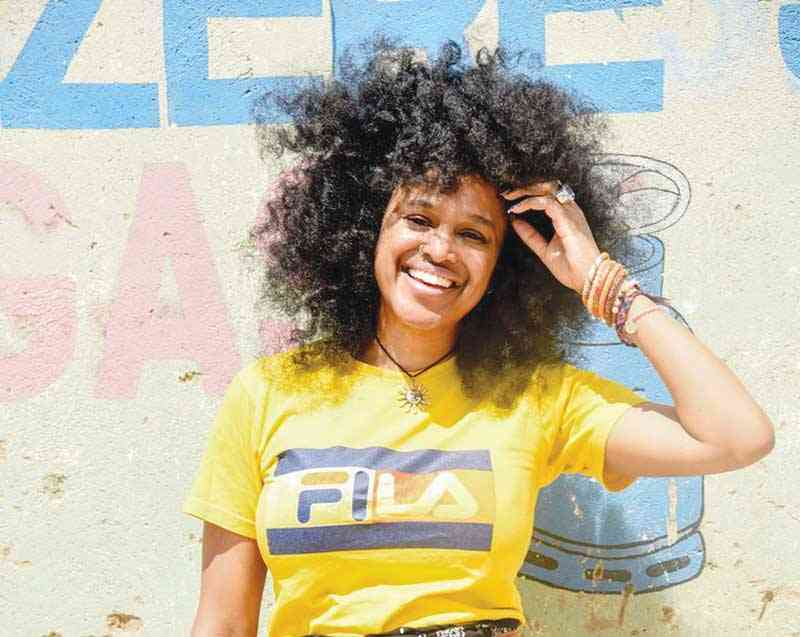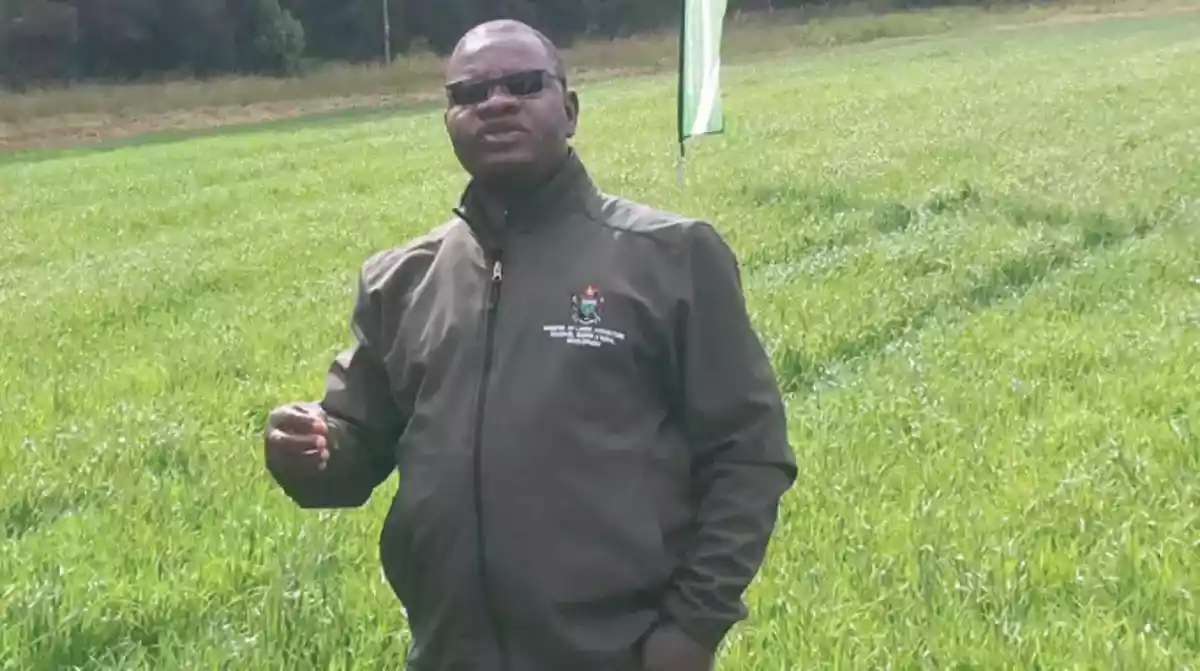
DANISH singer Iris Gold (IG) recently visited Zimbabwe to film a gender-based violence (GBV) video for a song she is working on with Plan International. Our reporter Vanessa Gonye (NDW) spoke to the Danish singer on her visit. Below are the excerpts of the interview.
NDW: How does it feel to be in Zimbabwe on such a mission?
IG: It feels special to come to Zimbabwe on such a mission because I have heard about Zimbabwe all my life.
My grandma used to work in Zimbabwe with some of her closest friends for a charity, non-profit organisation, that covered women’s rights, sexual and reproductive rights.
So, the story she told me about Zimbabwe has always been a great adventure in her life and she is very proud. When I told her I was coming to Zimbabwe to work for women’s rights and equality, she was proud.
This has been a very big moment not only for me, but for my whole family. She is 87. She wanted to come with me, but could not as she is walking with the aid of sticks.
NDW: Based on your meetings with locals you are working with, what is your view on the GBV subject?
IG: I have met some incredible and inspiring people, women and men who told me and shared their stories with me. I have met some incredible people who seem so passionate about the cause.
- Churches best positioned to deal with GBV
- The style interview: Tozeza Baba addresses gender-based violence
- Traditional leaders should front GBV fight
- GBV survivors share horrific stories
Keep Reading
It has been overall a great inspirational trip, and I would say the stories I have heard about violence here are not that different from the stories I have heard in the United Kingdom and in Denmark.
NDW: Do you feel Zimbabwe is on the right track in fighting GBV?
IG: Yes, I feel they are doing a great job in fighting GBV. I would say the difference is that, from what I gather, I know that in Denmark we have women’s shelters and places we can go and a welfare system so that when you choose to leave, you have somewhere to go.
I don’t know if you have them here, but if you have them, then maybe there is a need for more awareness of where they are located.
I think the problem is when you leave, where do you go?
NDW: How does it feel to partner Plan International in this great cause?
IG: At first, I was invited by my friends to attend one of their events and I was so moved by what they were doing and the whole vibe and energy of the event that I asked if I could do anything to help the cause and if we could work together.
We reached out again, and I was invited to perform at their event last year.
Apparently, the people who worked there were moved by my performance, and it was a natural progression then when I wrote this song to be like, okay, can we use this song to help the cause against violence on young people and children in general.
I hope that the song will go out as wide as possible so we can make a change.
NDW: In your view, how can artistes play a part in fighting GBV?
IG: I think artistes can really help because they do have a voice and a pattern.
They have a platform, they have a voice, they have their songs and I think in general, art should be, not that it’s the law, but I think if you can use your voice and use your art to show the problems in society and then it is up to society to choose how they feel about that.
At least raise awareness so that there can be a conversation about the problems that are global.
I feel good about starting that journey, in a bit more focused way.
NDW: What will you do after this project, when you get back to Denmark, how are you going to promote it there?
IG: When I go back to Denmark, I will work on a plan to find out the best strategic way to get this song out and our agenda and our message as broad as possible.
Finishing up this video that we shot here, you know, doing justice from everything that I have seen. I just want it to be beautiful.
I think I just want it to go out as broad as possible. I want to perform it at festivals. I want people to be singing along to this song.
I hope that people who have been through these things can see themselves in this song and then get help and tell somebody because that is the first step, to tell people that there is something going on that should not be happening.
NDW: You interacted with some youths here, what is the key takeaway from the issues they shared with you pertaining to GBV?
IG: I’m still processing everything that I heard that these amazing young humans told me, so I could not even do justice to the answer, I think, but wow, they were so brave. I don’t have the right words yet; I was really touched by what I saw.
NDW: How was your experience in the high-density suburbs and did that in any way influence your choice to have your hair done in Stoneridge?
IG: I have loved every bit of my visit here; the experience is just wonderful. Had my hair done here (Stoneridge) because this is the best hairstylist in the world and I got to have a little bit of the same style as hers (hair stylist) even though she won't let me have the curls because, you know, I can’t outshine.
I chose this place because I heard that she had also been in the Plan Brown, worked with Plan Brown and had been through that programme to get help to start her own business and I thought that was like a full circle kind of moment.
So, from my experience right now, watching her do her job, I’m really impressed, especially because I have a lot of hair and she managed to blow dry my hair in I would say five minutes, 10 minutes and normally it takes me half-an-hour, or an hour and it did not even hurt. Therefore, I would recommend coming here.
NDW: What other projects have you worked on previously?
IG: I have recorded and released two albums so far. I recorded one in the Caribbean in the Bahamas with Dave Stewart from The Eurythmics. He did Sweet Dreams and he did Sisters Are Doing It For Themselves with Aretha Franklin as well and that was an amazing experience as well.
I have done so many festivals. If you have heard, some of the biggest ones were Kill the Festival in Denmark, many TV performances, and many artistic videos that you can check out on YouTube. That’s what I have been doing.
NDW: Is this your first project on GBV?
IG: Yes, this is my first project on GBV, so it feels big and something I have really thought about and I want to do it the right way, but it is something that means a lot to me and I do want to make a change.
I have seen a lot of how it works in Denmark, about the system and I have seen a lot of problems and grey zones, places where the system just does not work, and I hope I can make a change not only in Denmark, but the world.
NDW: What’s your view on the state of global GBV?
IG: Well, it is a global problem. I don’t think it’s different anywhere in the world. I think there is violence everywhere in the world.
Unfortunately, I do think the difference, like I said before, is the resources that are there to help the women or men get out of these situations.
So really that is the key, I think, to have the help to get out and obviously there should not be violence in the first place.
That is obviously the first step. Second step, how do you get out and get these people help so they don't have to go back to the violence again?
NDW: Anything you would like to add?
IG: I’m glad that you wanted to do this interview in the first place. I feel honoured. When you asked me about the artistes and why should artistes get involved in these things, it’s because now we are doing this interview that maybe I urge you to think about doing interviews with the people that work in the office every day, all year round.










